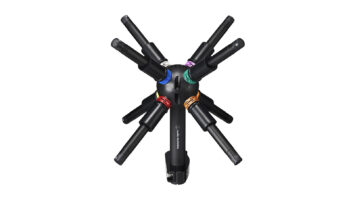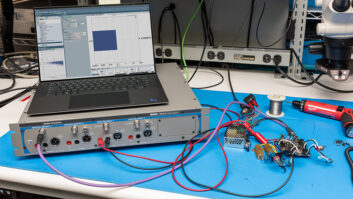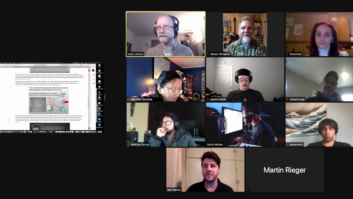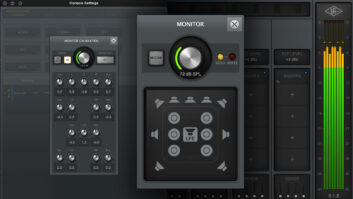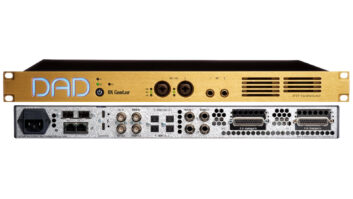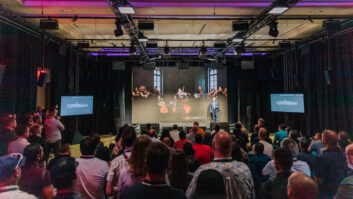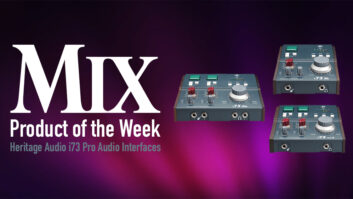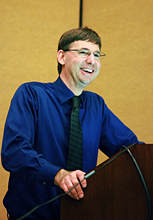
SoundCon LLC president Brian Schmidt
SoundCon LLC, based in Seattle, announces the launch of GameSoundCon, a videogame conference tailored to the professional audio community. GameSoundCon is an intensive two-day seminar for composers, sound designers and other audio professionals. It will focus on the creative, technical and business challenges that are unique to the game audio industry.
GameSoundCon’s inaugural event will be held September 24 and 25 in Los Angeles at the Hyatt Regency Century City. The second GameSoundCon for 2009 will be held on November 13 and 14 in San Francisco at Pyramind Studios.
“More people are playing videogames than going out to the movies,” says Brian Schmidt (pictured), conference director and president of SoundCon LLC, which is dedicated to education on the art, technology and business of game music and sound creation. “Although many schools teach music composition and sound design, few if any teach the additional skills needed to create music and sounds for interactive games. GameSoundCon attendees will learn the information critical for success in the multi-billion dollar games industry.
“I created GameSoundCon to bridge the gap between the knowledge traditional composers and sound designers have and what they need to prosper in the game industry, to help teach those talented audio professionals the skills they need to be able to hit the ground running when they do their first game,” Schmidt explains. “There are many skilled professionals well versed in creating sound and music for traditional media. But very few composers and sound designers understand the unique creative and technical challenges necessary to work in the games business.
“Back when I started in the late ’80s, early ’90s, there were really just a few of us who could do game audio, because you had to be a programmer and composer and such. And then sometime later, in the late ’90s or so, it became a little easier to do game music: You didn’t have to do the programming, and a lot of people from traditional media—whether television, jingles or films—started sticking their toes in game audio. As I’ve been giving these talks at Microsoft and at GDC and such, I’m struck by the number of people who are starting to enter the games industry from other more-traditional media backgrounds, and they get hung up pretty quickly on the fact that they can’t just use Pro Tools, and that’s all there is to it.
“There are numerous issues that traditional composers or sound designers don’t think about when faced with doing their first game,” Schmidt continues. “For example, what is a ‘parameterized’ sound effect, how to I create interactive music? What is XMA compression? Why can’t I just use Pro Tools to create game audio? These are issues that are second nature to the top game audio professionals, but they aren’t taught in traditional music or sound design courses.
“Also, the business models of the game industry are a little bit different from the film industry—who sells to whom, what’s publishing like. Even some of the nuts and bolts things, like the fact that when you’re working on a game, you’re really working on a software project. Everybody else associated with this project—like the producer and the programmer—view [it] as a software project, so that’s kind of a foreign thing to most composers. What does it mean to work on a software project? What is a daily build? What is revision control? What is scrum? And things like that.”
Considering that in recent years audio education schools have begun offering game audio training courses, Schmidt envisions GameSoundCon as a “cram-course” for working professionals. “I think it’s a semester’s worth of stuff [packed] into a couple of days. It’s also a good opportunity to [teach] some things that might not make direct sense for a [school like] Berklee to teach.”
Schmidt received the Game Audio Network Guild (G.A.N.G.) 2008 Lifetime Achievement Award and is a 23-year veteran of the game audio industry, having composed music and created sound effects for more than 130 interactive games. Schmidt also brought interactive Dolby Digital surround sound to videogames as architect of the Xbox and Xbox 360 audio systems, and frequently gives keynote addresses and technical talks within the game industry.
For more information, visit www.gamesoundcon.com.
